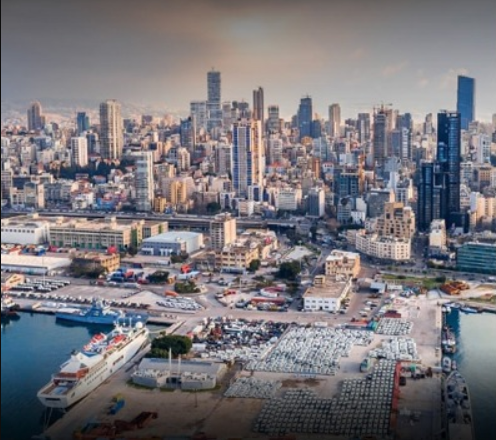Every day, hundreds of people at Lebanon’s northern port city of Tripoli board a ship bound for Turkey – but for most, the trip is anything but a relaxing holiday.
The ship returns nearly empty, because most of those on board are not tourists but Syrians setting out on the first stage of a journey to escape their country’s conflict and build a new life.
These Syrians are mostly middle-class and have the benefit of valid travel documents, meaning they can take advantage of the visa-free entry Turkey offers Syrians.
But once they reach Turkey’s shores, at the ports of Tasucu or Mersin, they join the thousands who have gone before them, paying smugglers exorbitant fees and risking their lives to continue their journey onwards to Europe.
At the port, Lebanon’s largest after that in Beirut, many are reluctant to admit the purpose of their trip.
Pulling three large suitcases behind him, Abu Yahya says he has come from Damascus with his wife and two children.
He looks embarrassed as he says without conviction that he is “going to Turkey to visit family”.
Nearby, a group of young men from Syria’s central Homs province laugh.
“The situation in Syria is so good that we can go and do tourism and then go home again,” says Tareq, one of the group, in a sarcastic tone.
Speaking more seriously, he said, “We’re all here to flee to Europe.
“I will flee to Greece, even if I risk death.”
“We’ll take our chances,” his friend adds.
“We have nothing to lose since death stalks us in our country.”
The service to Turkey was launched in 2010, a year before Syria’s war began, and used to run twice weekly during the summer.
“Now it goes four times a day,” says port director Ahmed Tamer.
“In August alone, we had 28,000 passengers, compared to 54,000 for all of 2014,” he adds.
The traffic stepped up with the closure last year of the last regime-held border crossing between Syria and Turkey at Kassab.
Without the crossing in northern Latakia province, residents of the coastal regime stronghold began turning to Lebanon to make their way to Turkey.
Cars bearing the licence plates of Latakia and neighbouring Tartus province line up at the port’s entrance in Tripoli.
Lebanon’s General Security confirms that on the ship “90 percent of the passengers are Syrian” nowadays.
“Most don’t come back to Lebanon,” Tamer says.
On one trip, some 1,000 passengers departed, but only about 50 Lebanese passengers came back.
One Lebanese passenger said of 40 cabins available on the boat, all were occupied by Lebanese.
“The Syrians sleep on the deck or on plastic chairs,” he says, declining to give his name.
There are two routes: one to Tasucu that takes 13 hours and costs $170 (150 euros); and another to Mersin that takes seven hours and costs $270 a person (236 euros).
“On board, all they talked about was their future and their lives in Germany,” the Lebanese passenger says.
‘Where will we go?’
Lebanon is home to more than one million Syrian refugees who have fled the conflict, most of them desperately poor and many lacking the paperwork necessary to board the ferry from Tripoli.
They are forced to take their chances with illegal boats that sail from beaches near the city, risking being caught by police or cheated by smugglers.
“Some traffickers trick refugees,” a security source tells AFP.
“They take their money, tell them to meet at a beach and never show up.
“Others take them to an island off the coast of Tripoli, pretending to authorities they are on a day-trip, and then when night falls a boat takes them on to Turkey or Greece,” he says.
These trips can also be deadly, with several cases in recent months of refugees drowning after setting off from Lebanon in smuggler boats.
But the dangers have done little to deter people like Um Mohamed, who left the Palestinian refugee camp of Yarmuk in Damascus.
She hopes to reach Greece with her young children, but has not yet saved up the $4,000 (3,500 euros) fee demanded by smugglers.
“I envy the families who have made it to Germany,” she says.
“I will try again.” Back at the ferry pier in Tripoli, passengers face hours of waiting before they are allowed to board.
Security services have tightened checks at the port after seizing several falsified passports.
Families approach the boat looking exhausted, some carrying children in their arms.
“I’m going to Turkey with my family,” says Imad.
“Then where will we go? God only knows.” Some of the children appear disoriented and confused about the trip.
“We’re going to Turkey,” says one little girl. “I’m not sure to do what.”
